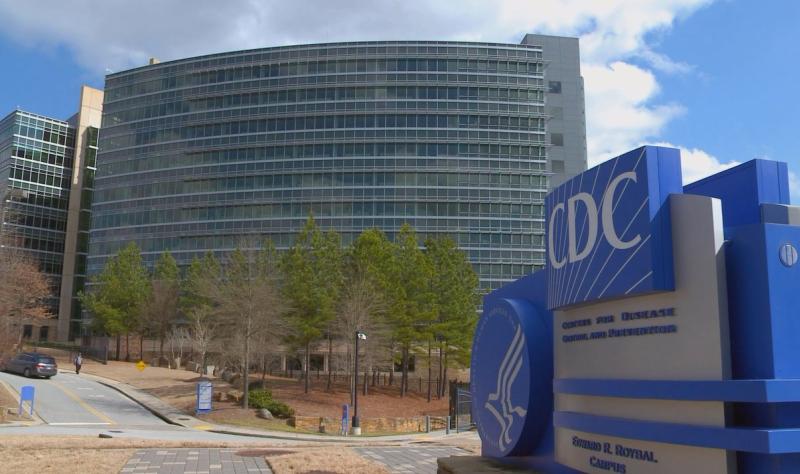Does COVID-19 infection during pregnancy affect the fetus? As mothers worry, early research offers no clear answers.


Millions of women have been infected with COVID-19 while pregnant, raising a troubling question: Has the virus harmed their children? Does a mother’s infection affect how her offspring will grow and develop?
Researchers around the country are investigating, and so far have found hints of possible trouble but no firm answers.
“The jury is still totally out in terms of whether this virus affects the fetus,” said Dr. Dani Dumitriu, a pediatrician and neuroscientist at Columbia University Irving Medical Center in New York City. “And the jury is going to be out for the next several decades.”
Developmental problems triggered in the womb typically don’t show up for years. Autism is usually diagnosed around age 2, attention deficit disorder at school age or later, and schizophrenia in adolescence or young adulthood.
With COVID-19 so new, the research so far has brought only tentative findings about children age 1 or younger.
And two recent studies came to almost opposite conclusions.
One report, published this month and focused on babies born at the six Mass General Brigham hospitals, found an increased risk of delays in motor function and speech in 1-year-olds whose mothers were infected during pregnancy.
The other study, published in January and conducted by Dumitriu’s group in New York, found that children of women who gave birth during the height of the pandemic had more developmental problems than prepandemic babies — but it made no difference whether the mother was infected or not. The developmental problems, researchers posited, resulted from maternal stress, which is known to have a powerful effect on fetal development.
The two studies used different methodologies and involved small numbers of participants, and both sets of researchers are working on follow-up studies.
No question, getting COVID-19 while pregnant carries immediate risks. According to the US Centers for Disease Control and Prevention, pregnant people who become infected are significantly more likely to need intensive care, and to die. They are also more likely to deliver their babies prematurely, which carries its own set of developmental risks.
But what, if anything, does a COVID infection during pregnancy do to the developing fetus?
It appears the virus rarely infects the fetus. Instead, researchers are concerned about the mother’s immune response to viral infection — a cascade of disease-fighting cells that can cross the placenta and could affect the developing brain.
“The maternal immune system is changed because of pregnancy. It’s stronger,” said Dr. Gil Mor, scientific director of C.S. Mott Center for Human Growth and Development at Wayne State University. That strength can have a downside, he said, when the immune system goes to war against something entirely new but doesn’t know when to declare victory and shut down. The result can be a chronic inflammatory response.
“We need to do everything possible to prevent the chronic inflammation,” said Mor, who studies the effects of pathogens on the immune system in pregnancy. “How do you do that? Simple. Vaccination.”
Long before the coronavirus pandemic, scientists identified connections between infections during pregnancy and higher rates of developmental problems or birth defects in the offspring. People born during the 1918 influenza pandemic had lower education levels as children and were less economically successful as adults. Exposure to influenza, rubella, and other pathogens in the womb has been associated with schizophrenia.
More recently, the Zika virus led to children being born with tiny heads and cognitive impairments in a minority of infected women.
In all these studies, the risk to any individual is small; the differences are seen across a big population. And they don’t mean that COVID-19 will have similar effects — just that there’s reason to keep an eye on the pandemic generation.
That’s why researchers at Massachusetts General Hospital delved into electronic health records to see if they could detect any differences between children born to women who had COVID-19 while pregnant and those whose mothers had not.
Looking at anonymized records of nearly 8,000 births between March and September 2020 at six hospitals in the Mass General Brigham system, they identified 222 mothers who had been infected with SARS-COV-2 while pregnant. Most had mild cases and most infections occurred in the third trimester. They then checked to see if any problems had been noted in pediatricians’ records of these babies within the first year of life.
The team didn’t expect to find any difference between the babies of infected and uninfected mothers so early in life, said Dr. Roy Perlis, director of Mass. General’s Center for Quantitative Health and an author of the study.
But they did detect a concerning possibility. Among the children of infected mothers, there was a higher rate of neurodevelopmental delays. A few babies were late to do such things as sitting up, reaching for an object, rolling over, or babbling.
However, babies who are delayed in reaching these developmental milestones often catch up. “These are the kinds of non-specific diagnoses that don’t necessarily persist,” Perlis said.
Among 7,550 babies who had not been exposed to SARS-COV-2 before birth, about 3 percent had diagnoses of neurodevelopmental delays. Among the 222 whose mothers had been infected, the rate was 6.3 percent. But the raw numbers are very small: That 6.3 percent represents just 14 babies.
The infected women also had a higher rate of preterm births, but when the researchers adjusted the data to account for that, they found that full-term babies of infected mothers were still at higher risk.
Many questions remain unanswered, Perlis said: Does it matter how sick the mother became? Does it matter which variant she caught? Does the vaccine protect against fetal harm even if the mother gets a breakthrough infection? The births studied all occurred before vaccines were available.
Because the findings are so preliminary, Perlis said the team considered waiting for more data, but ultimately decided it was important to alert people to the possible risks. The research was published in JAMA Network Open.
Perlis expressed hope that it would encourage people to protect themselves from COVID-19 while pregnant.
“We want people to get vaccinated — that’s what we want,” Perlis said. “We don’t want to scare people. People don’t need more things to worry about at this point.”
But it’s precisely that worrying that concerns Dumitriu, senior author of the New York study.
Her team gave a standardized questionnaire about infant development to the mothers of 255 infants born between March and December 2020. They found no difference in responses of mothers who’d had COVID-19 while pregnant compared with those who had not been infected. But when they compared their responses with those of a group of prepandemic mothers, they found the babies born during the pandemic had lower scores in areas such as motor and social skills.
The researchers, published in JAMA Pediatrics, attributed the difference to the stress of having a baby during the pandemic.
And that’s one reason why Dumitriu was highly critical of the Mass. General study, which she said has “shaky data” that could needlessly stress out pregnant women, “which then can lead to negative neurodevelopmental outcomes.”
Protecting pregnant women from stress is “equally if not more important for the well-being of their baby” than avoiding the virus, she said.
The most likely reason for the increase in diagnoses found in the Mass. General study, she said, is that the mothers — aware they’d been infected — were following their babies more closely and raising questions with pediatricians, who then made note of their concerns in the medical record.
“Even if the conclusions of this paper are correct,” Dumitriu said, “I want to emphasize to new parents, those effects will still be very small and at that age are not indicative of any long-term problems.”
Mor, the Wayne State researcher, was less critical of the Mass. General study, calling it “very important” for raising awareness of a possible risk and potentially encouraging women to get vaccinated.
Dr. Benjamin J. al-Haddad, a neonatology fellow at the University of Washington who has studied the effects of infections in pregnancy, also found the Mass. General study “a valuable study and a valuable contribution” but emphasized that it “isn’t the final word.”
“There will be bigger studies,” he said. “Probably in the next couple of years, we’ll have a better idea, one, if there is a real effect and, two, what the magnitude of the effect will be.”
Charles A. Nelson III, a neuroscientist at Boston Children’s Hospital, hopes to provide some of those answers. He is following the children of mothers who tested positive for COVID-19 over time. He’s enrolled about 30, and hopes eventually to have 100 children and track their development for three or four years.
So far, he’s seeing “a small drop in language scores” at three and six months, but can’t say whether it signals lasting problems.
“What I’m worried about, is alarming women who are already alarmed,” Nelson said. “On the other hand, we don’t want to put our heads in the sand.”
Felice J. Freyer can be reached at felice.freyer@globe.com. Follow her on Twitter @felicejfreyer.


